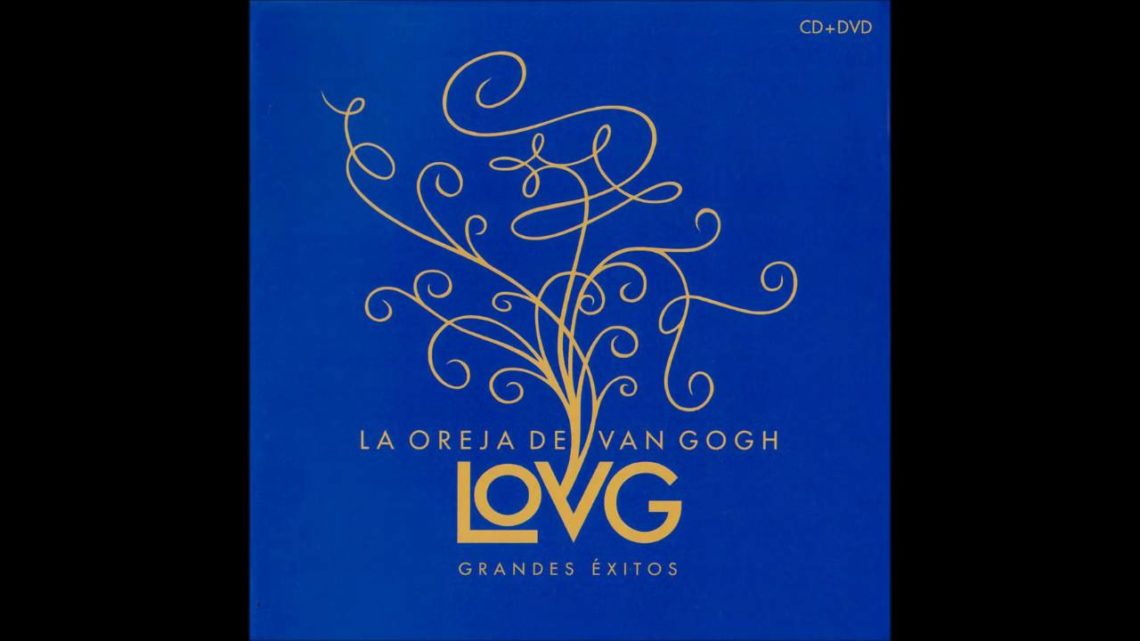“Suddenly you look at me
I look at you and you sigh
I close my eyes
you look away
I barely breath
I become small
and I shiver
and days go on like this, from monday to friday
like the nightingales in Bequer’s poem
from station to station, in front you and I
here comes the silence”
—–La Oreja de Van Gogh
The little poem above is excerpted from the lyrics of “Jueves” , which is a touching love song from the Spanish brand “la oreja de van gogh” (Van Gogh’s Ear). The song was published on July 14, 2008. Since then, its combination of deep melody with sentimental lyrics has tugged at the heartstrings of millions of audience and become one of the most best-known Spanish songs.
Love is an eternal theme of human’s art, and songs for expressing love emerge endlessly in the music world. But unlike other beautiful ballads with romantic tones, “Jueves” narrates a tale of sorrow. It is named for “Jueves” (Thursday) because it is in memory of Madrid train bombings on March 11, 2004 when 10 bombs exploded in trains of Madrid, resulting that 192 people died and 2000 people injured. The lyrics of this song are adapted from an unfinished diary entry found in ruins of one train, recording a girls’ silent love to a boy who takes the same bus with her every day. But she was long devoid of courage to tell him. On “Jueves” of the week, she finally picked up the courage to tell him the truth and she surprisingly discovered that the boy also fell in love with her. Unfortunately, right at that moment the bomb blast and their young lives perished in the explosion, without sharing their first kiss in time.
The first time I heard this song was in the Spanish study club of junior high school while we were choosing choral repertoires for the school music concert. Its beautiful melody and poetic lyrics soon caught our ears, which left us with a great impression, so we decided to perform it in the school concert. It is the pronunciation of Spanish that troubled us right at the beginning. Though we had learned Spanish for about a year at that time, most of us were still struggling with the “alveolar trill” which is a unique vocal skill of Spanish. To solve the problem, we gathered after class and searched for some lessons on Youtube to watch the mouths and tongues of native Spanish speakers carefully when they pronounce “r”. Besides, we found that sometimes when we were singing, we were so nervous that we could not even keep the mouthpiece against the lips to sing naturally. So we sang face to face to help each other open our mouths, allowing our voice to project the thought and emotions embodied in the song. During the process of preparing for the performance, I established a deep friendship with some of them who had similar interests to me. We could support each other to improve our singing skill and every weekend we would join together to sing and play music happily.
However, studying in the US, I’m no longer as close to my friends back in China who could sing with me as before. Heavy academic stress at college also urged me to drift apart from the singing, with this song buried in my heart. When I listened to it and sang it again after eight years, I couldn’t help thinking of those precious days with my dear old friend. I cried like a baby, with tears rolling down my face, and was overwhelmed by a sudden inexpressible loneliness. I am so worried that I might no longer find a group of people whom I could sing with and share my thoughts of music with for the rest of my life. But luckily, my passion for singing was rekindled in the class Singing Through Life and found myself meeting a bunch of classmates falling in love with singing as me.
Among all the activities we had done in class, “singing my name” game impressed me most, which inspired me to have a new appreciation of my own name and the meaning of singing. At the beginning of the game we were asked to stand behind desks and sing our own names continuously to explore the inner rhythm behind it. At first, I felt a little uncomfortable because it’s quite awkward to speak my name constantly without any accompaniment. So I closed my eyes for a few seconds to meditate on the implication of my name and how I could utilize it to promote my way of singing. Some hazy and episodic memories of childhood flew through my mind. I recalled that my parents have told me the reason why they chose “ Yu” as my first name is because in my mother language it contains two layers of meaning.First, “Yu” represents rain in Chinese and there was a heavy rain the day I was born. Thus, my parents gave me this name in memory of the moment I came to the world.More importantly, it also represents the cosmos, the infinite space including all celestial bodies, and they wish that I would also be open-minded to accept different views and cultures when I grow up. Bearing in mind what my name means, I tried singing it as long as possible to have my voice stay in the air and join with others’ names, even creating a chorus effect. At that moment, I was surprised how voices from various cultural or social backgrounds are actually able to engage with each other and contribute to the harmony and rhythmic structure. Doesn’t it mean that our hearts are never far away and all men/women on earth are human brothers/sisters?
Besides the “singing my name”, we also played a vowel-game, which is quite similar to an exercise practiced by professional singers to dissect the lyrics.The line I chose for the game is “ Si fuera más guapa y un poco más lista ”. One thing I noticed through singing is that it is quite difficult to distinguish between vowel phonemes in Spanish. Maybe it is because Spanish has only five vowel (A-E-I-O-U) sounds while English has more than fourteen vowels. So it’s a bit challenging to find the right mouth-shape, which can keep the vowels open. After many tries, I finally found a proper and comfortable way to transit from one vowel to another smoothly, giving me a great sense of achievement. When I practiced “Jueves” for the class project, this game also helped me to have a more active movement of the vocal organ and it improved my respiratory skill in singing.
Overall speaking, the experience of Singing Through Life is informative and entertaining. My singing skills improved through the activities in class and I could utilize those skills to promote my singing performance of “Jueves”. More importantly, my understanding of the meaning of singing has deepened in the discussion with my classmates. It convinced me that singing or music is such a fabulous way to unite us as a whole, bring the hearts of our peoples closer. Just like without “Jueves”, I may never understand the feelings and emotions of Spanish people in Madrid train bombing as a Chinese. Nowadays “Jueves” is not merely a “song” to me but also a friend I hadn’t seen for a long time whom I could chat about my life experiences in these years. It helps me realize that singing, as a universal language, could preserve our cherished memory, soothe the spirit in drama and unite people across the world.

